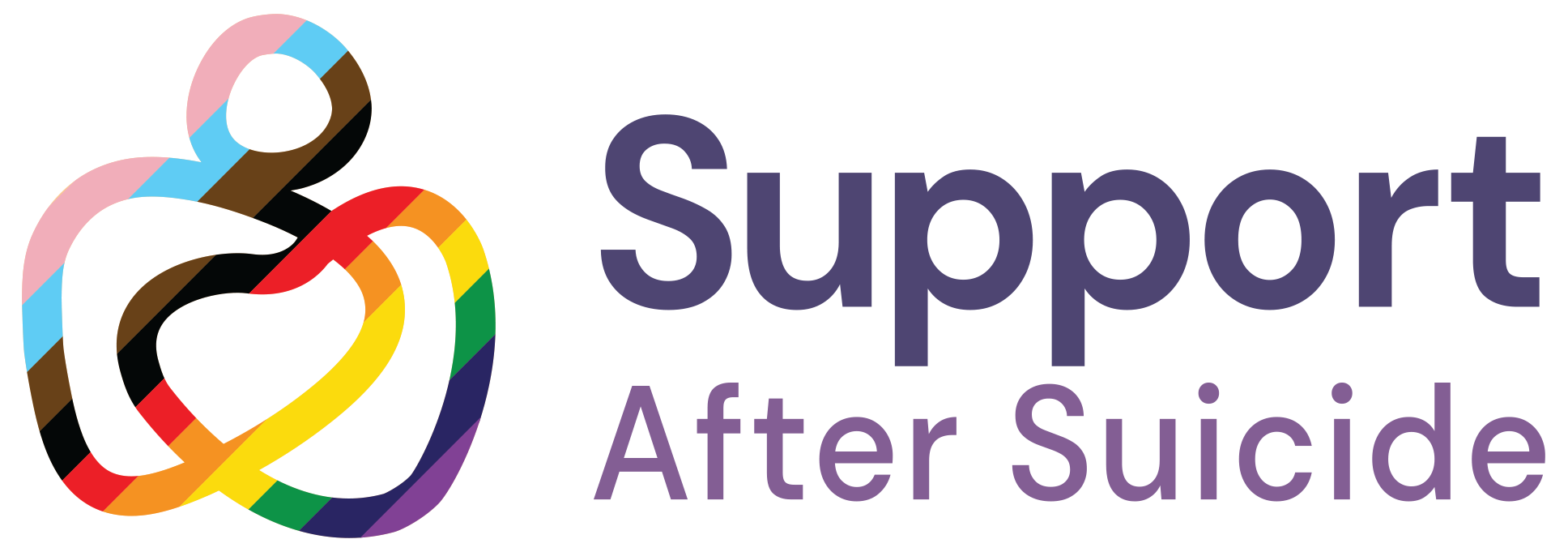
Experiencing bereavement
Losing someone to suicide can bring about thoughts and feelings we may not have experienced before, and stigma around suicide can complicate our grief. How we experience grief is unique to each of us. We may experience some, all or none of the following.
We may:
- feel isolated and alone
- feel a sense of guilt for not being able to prevent their death
- fear others may judge us or not know how to react
- repeatedly search for an answer to why this has happened
- if we are related to the person who died, fear that our family will be judged or blamed
- feel anger towards, abandoned or rejected by the person who has died
- experience relief, particularly if the person had been suffering for a long time before they died
- experience thoughts of suicide of our own.
Our experience can be shaped by:
- our relationship with the person who died and the closeness of the relationship
- the circumstances surrounding their death
- how we’ve managed emotional distress in the past
- our support network
- our culture and community’s understanding of suicide.
Grief can be expressed in many ways:
- physically - changes in appetite, sleep, fatigue, restlessness, crying
- emotionally – feelings of sadness, fear, anger, shame, guilt, relief, overwhelm
- mentally – changes in memory and concentration, experiencing confusion, flashbacks, being unmotivated
- socially – changes in relationships, a need to withdraw
- spiritually – experiencing self-doubt, loss of purpose, continued connection with the person who died.
Trauma and bereavement
Overall, suicide bereavement tends to be associated with increased levels of shock and trauma compared with other types of bereavement. Sometimes it’s difficult to understand our own responses, or the intensity of our grief. This may cause us to feel disconnected from ourselves.
While many people will recognise that they are grieving, it can be helpful to recognise that you are likely to also feel traumatised by the loss.
LGBTQIA+ identity and suicide bereavement
We know that suicide has a disproportionate impact on our communities (LGBTIQ Health Australia, 2021). Many of us have thought about suicide, supported others who have, and are bereaved by suicide. We can face additional challenges getting support.
Our experience may be impacted by discrimination towards our LGBTQIA+ identities, or other identities we hold. We may have concerns around our safety, such as fears of being outed, that make it feel difficult to reach out for support.
We might try to have conversations with family, friends, or others in our community who don’t know about our relationship to the person who died. Or people who do know, but don’t acknowledge the relationship as valid. We may find ourselves excluded from traditional memorials, rituals, and grieving processes, or forced to hide parts of ourselves to attend.
Other bereaved people may have a different relationship to the person who died. They may not have known of, or refuse to acknowledge, who they are in terms of their gender or sexuality. We may hear them be spoken of or remembered very differently to how we knew them, for example, being deadnamed or misgendered.
Shame around our experiences with suicide could deter us from asking for help. We might come to believe our grief is invisible to those around us, or it’s better if we hide it.
Culture, faith and LGBTQIA+ suicide bereavement
Our connection to country, faith and culture can impact how we experience and mourn a loss by suicide. LGBTQIA+ people bereaved by suicide may connect with our faith and culture as part of our healing. We could have a harder time mourning if we are unable to participate in cultural or religious practices, encounter stigma within or towards our religion or culture, or feel our culture’s relationship to suicide is not understood by those around us.
The mourning process of LGBTQIA+ people who are culturally and linguistically diverse, refugee or asylum seekers, First Nations, Black and/or people of colour can be further impacted by issues such as:
- support services failing to recognise our culture and/or faith
- insufficient resources in our first language
- being unable to access services that require Medicare
- being displaced from our country, community, or connection to culture
- being unable to return to our country for grieving processes.
Other impacts
Other identities and experiences we have may impact our relationship to death and grief, such as living with chronic illness and/or disability.
Time and grief
The experience of grief can often last longer than we or those around us expect. The impact of a loss to suicide is profound and may take time and effort to learn to live with.
It is a non-linear process; everyone’s timeline and trajectory will look different. There may be times where we feel we are managing well, and times where grief intensifies. For example, on anniversaries or special occasions, or when memories surface unexpectedly.
There are services available to assist you, including counselling support, peer support groups and the SASH forum for connecting with other LGBTQIA+ people bereaved by suicide.
